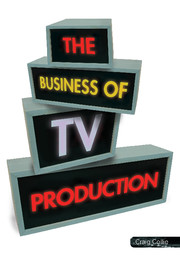Book contents
- Frontmatter
- Contents
- Preface
- Diagrams and tables
- Abbreviations
- Part A Opiate of the people: the television industry
- Part B Massage parlour: development and funding of a project
- Part C Riding the tiger: management of the production
- Part D A nod to the gatekeepers: the environment of television
- Chapter 24 Building the television schedule
- Chapter 25 Legal constraints on content
- Chapter 26 Business structure and operation
- Index
- References
Chapter 25 - Legal constraints on content
Published online by Cambridge University Press: 05 June 2012
- Frontmatter
- Contents
- Preface
- Diagrams and tables
- Abbreviations
- Part A Opiate of the people: the television industry
- Part B Massage parlour: development and funding of a project
- Part C Riding the tiger: management of the production
- Part D A nod to the gatekeepers: the environment of television
- Chapter 24 Building the television schedule
- Chapter 25 Legal constraints on content
- Chapter 26 Business structure and operation
- Index
- References
Summary
Like all sectors of the contemporary world of business, the television industry is guided and constrained in its activities by regulation and the law. We have already seen the regulation of Australian content in Chapter 3, and the regulation of the employment of children in Chapter 15, and we will see in Chapter 26 the laws and regulations governing the establishment and running of a business, as well as the law's requirement of it regarding employment, taxation and insurance. This chapter examines the ways in which the law restrains some content from being shown on television, either because it belongs to someone else (copyright law), or because it would unjustifiably sully someone's reputation (defamation law), or it would undermine the legal process (law of contempt and sub judice), or it is not fit to be presented to the public (law of offensive material), or it provides misleading information about goods or services (trade practices and consumer law), or it offends any of the other myriad laws and regulations that are part of ‘civilised’ society. Interestingly, there is little law in Australia to constrain the media imposing on people's privacy, as long as it isn't defamatory at the same time.
What is copyright?
An early film copyright case
In 1907, the Kalem Company produced a one-reel film version of Ben Hur from Lew Wallace's novel. Wallace's publishers sued, as did the producers of a play based on the book.
- Type
- Chapter
- Information
- The Business of TV Production , pp. 376 - 397Publisher: Cambridge University PressPrint publication year: 2007



